
Preparing for a test involves more than just studying facts; it requires an approach that helps you showcase your knowledge effectively within the time limits. Understanding how to present your ideas clearly and efficiently can make a significant difference in your performance. Whether it’s a multiple-choice, essay, or short-answer format, knowing the best methods to tackle each type of task is essential.
Organizing your thoughts before starting to write, focusing on the most relevant points, and maintaining a calm mindset can be the keys to success. It’s not only about knowing the right answers but also about demonstrating your understanding in a way that’s easy to follow for anyone reading your work.
Mastering these techniques will help you feel more confident when facing any assessment. By following a few simple yet effective strategies, you can approach each question with clarity and precision, ensuring you get the best possible result. Success lies in how you manage both your knowledge and your time during the test.
Strategies to Approach Test Challenges
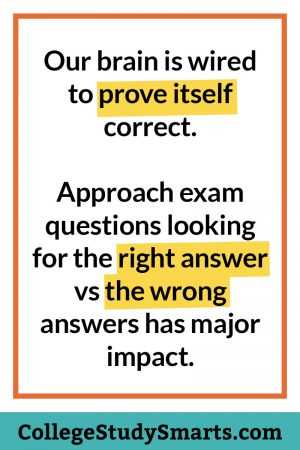
Successfully navigating any assessment requires more than simply recalling information. It’s about applying your knowledge in a way that’s both organized and clear, ensuring your responses align with the expectations of the evaluator. By utilizing certain techniques, you can better manage your time, structure your thoughts, and communicate your ideas effectively.
Mastering Time Management
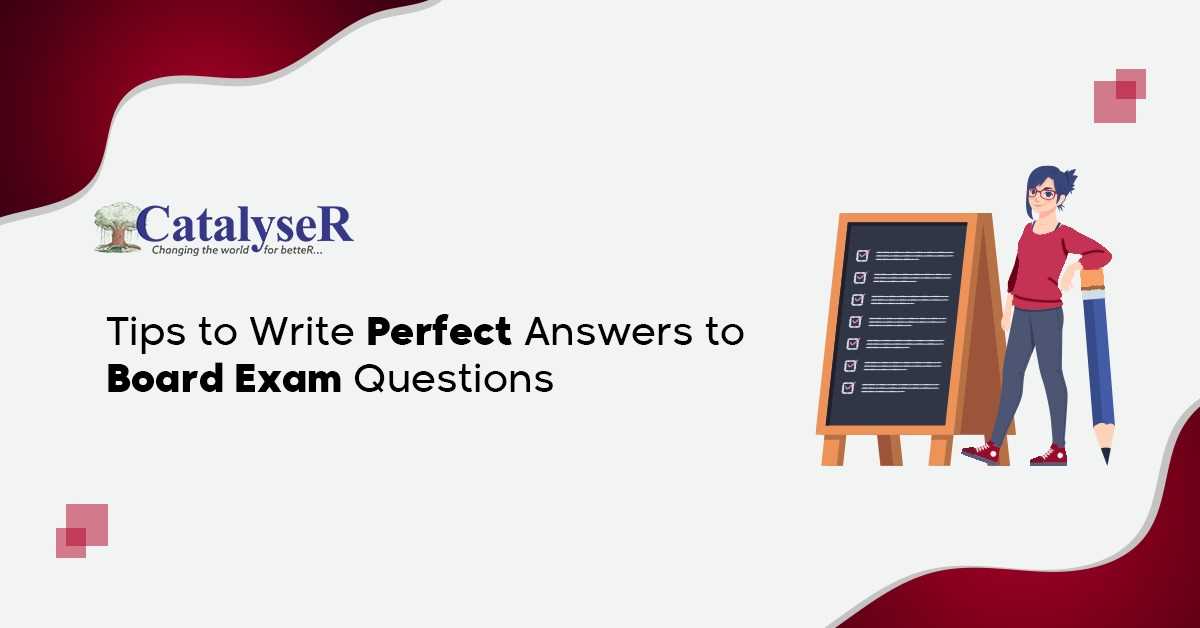
Effective time management is crucial in completing each section within the allotted time. Start by allocating specific amounts of time to each task, allowing yourself time for review at the end. Prioritize the questions based on difficulty and your level of comfort with each topic. This strategy helps prevent spending too much time on a single task at the expense of others.
Structuring Your Responses Clearly
Clear and concise writing is essential to demonstrate your understanding. Before starting, take a few moments to outline your thoughts. This will help you present your ideas logically and ensure you don’t forget any important points. Break down complex concepts into simpler, digestible parts to make your response easy to follow.
| Step | Action | Outcome |
|---|---|---|
| 1 | Review the instructions carefully | Ensure you understand what is being asked |
| 2 | Plan your answer before writing | Maintain logical flow and clarity |
| 3 | Write clearly and succinctly | Communicate ideas effectively without rambling |
| 4 | Leave time for review | Catch any mistakes or overlooked details |
Understand the Question Before Answering
Before jumping into your response, it’s crucial to fully comprehend what is being asked. Misunderstanding the task can lead to irrelevant answers and wasted time. Taking a moment to analyze the prompt carefully can significantly improve the quality of your work. The better you understand the expectations, the more effectively you can tailor your response to meet them.
Analyze Key Terms in the Prompt
Pay close attention to any key phrases or directives in the question. Words like “describe,” “explain,” “compare,” or “evaluate” give you a clear indication of what type of response is expected. This will help you avoid veering off-topic and ensure you’re addressing the question accurately.
Break Down Complex Prompts
If the prompt is lengthy or complicated, break it down into smaller parts. Identify the core components and address them one by one. This methodical approach will make it easier to organize your thoughts and provide a well-structured response.
| Step | Action | Benefit |
|---|---|---|
| 1 | Identify key terms in the question | Clarifies the type of response needed |
| 2 | Break down complex questions | Ensures all parts are addressed |
| 3 | Rephrase the question in your own words | Ensures full understanding of the task |
| 4 | Clarify any uncertainties | Avoids misinterpretation |
Manage Your Time Effectively
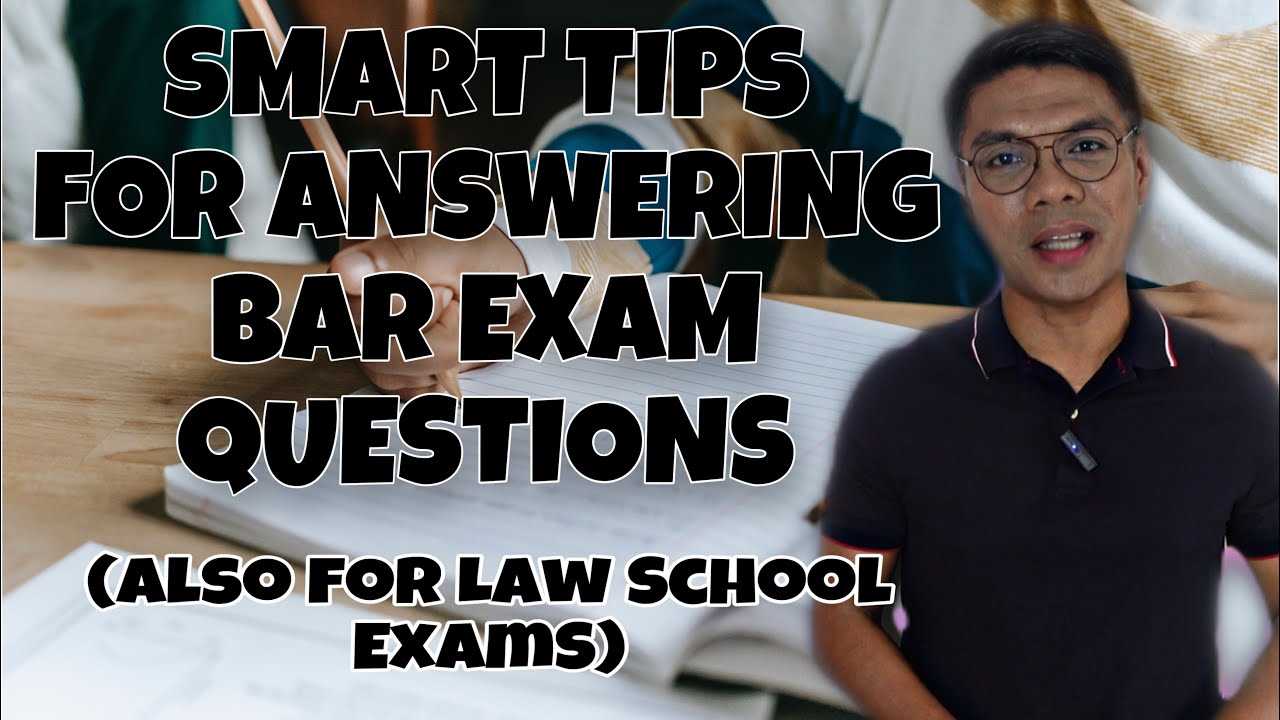
Efficiently managing your time during an assessment is essential to ensure that every part of the task receives adequate attention. Time constraints can create pressure, but with a clear strategy, you can make the most of the time you have. By pacing yourself and prioritizing tasks, you can enhance both the quality and completeness of your work.
Set a Time Limit for Each Section
Breaking the test into manageable sections and assigning specific time slots to each can prevent you from spending too much time on one part. Allocate more time to sections you find challenging and less to easier ones. This approach helps maintain balance and avoids rushing through the more difficult parts.
Use the Clock Wisely
Regularly check the time to gauge your progress. If you notice you’re falling behind, adjust your pace accordingly. Avoid focusing too much on a single question at the expense of others. If you’re stuck, move on and return later if time allows.
Prioritize Questions Based on Difficulty
Start with the questions that are easiest for you. This approach boosts your confidence early on and ensures that you secure points quickly. Save more difficult questions for later when you have a better grasp of your remaining time.
- Begin with the most straightforward tasks
- Divide the remaining time according to difficulty
- Review time management periodically
Leave Time for Revision
Reserve the last few minutes of the test to review your answers. This final check can help identify and correct any mistakes, ensuring that your responses are as accurate and complete as possible.
- Always plan for at least 5 minutes of review
- Look for any overlooked details or errors
- Check for clarity and coherence in your answers
Read All Instructions Carefully
Before diving into the tasks at hand, it is crucial to thoroughly review all guidelines and requirements provided. Missing or misunderstanding important details can lead to mistakes, wasted effort, or incorrect responses. Taking the time to fully comprehend the instructions ensures that you approach each part of the assessment correctly and avoid unnecessary confusion.
Check for Specific Requirements
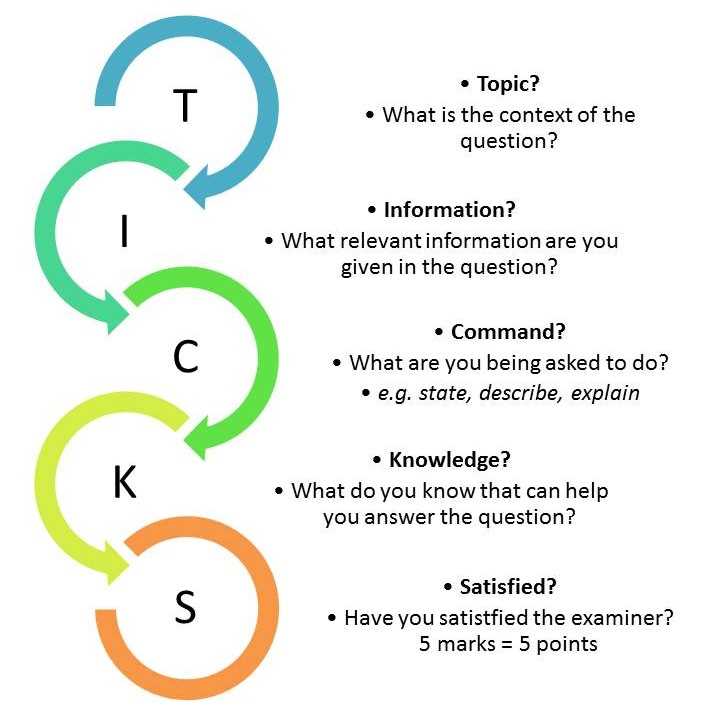
Instructions often contain specific directions that are essential for completing the task. These may include word limits, formatting guidelines, or specific points that need to be addressed. Ignoring these details can result in penalties or incomplete answers.
- Look for word count limits or formatting rules
- Identify whether multiple sections or parts need to be completed
- Understand if certain questions require detailed examples or explanations
Pay Attention to Special Instructions
Sometimes, there may be specific instructions for particular sections or questions. These can include things like “choose two of the following,” “answer in bullet points,” or “give a brief response.” Be sure to highlight these parts so you don’t miss them when you’re answering.
- Highlight instructions that vary from the usual format
- Note any exceptions or special conditions for certain sections
- Ensure you are not repeating or skipping any required tasks
Double-Check for Updates or Changes
Sometimes instructions may change during the test, or there may be clarifications from the proctor or instructor. Stay alert to any updates, especially if they alter the way you should approach a particular question or section.
- Be aware of any last-minute announcements
- Review any changes carefully to adjust your strategy accordingly
Start with What You Know
When facing a series of tasks, it’s often best to begin with the parts that are easiest for you. By starting with familiar material, you build confidence and momentum, which can help you tackle more challenging sections with a clearer mind. This approach ensures that you secure points quickly and prevents unnecessary stress as you progress through the assessment.
Focus on the Simple Tasks First
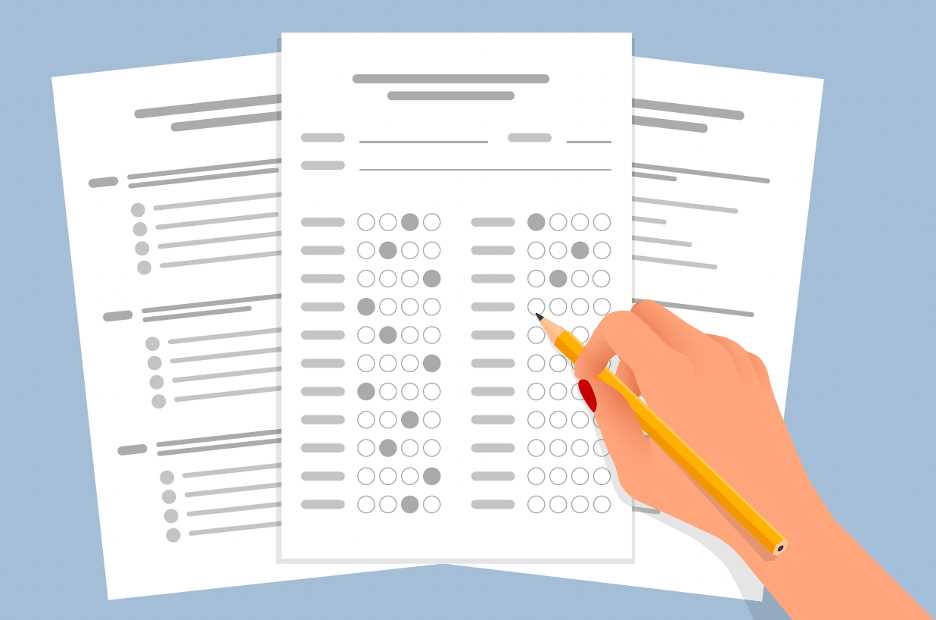
Identify the areas where you are most confident and begin there. These are typically the questions or sections that don’t require extensive thought or time. Answering these first helps you make quick progress, allowing you to reserve more energy for the more complex tasks ahead.
Use Your Knowledge to Gain Confidence
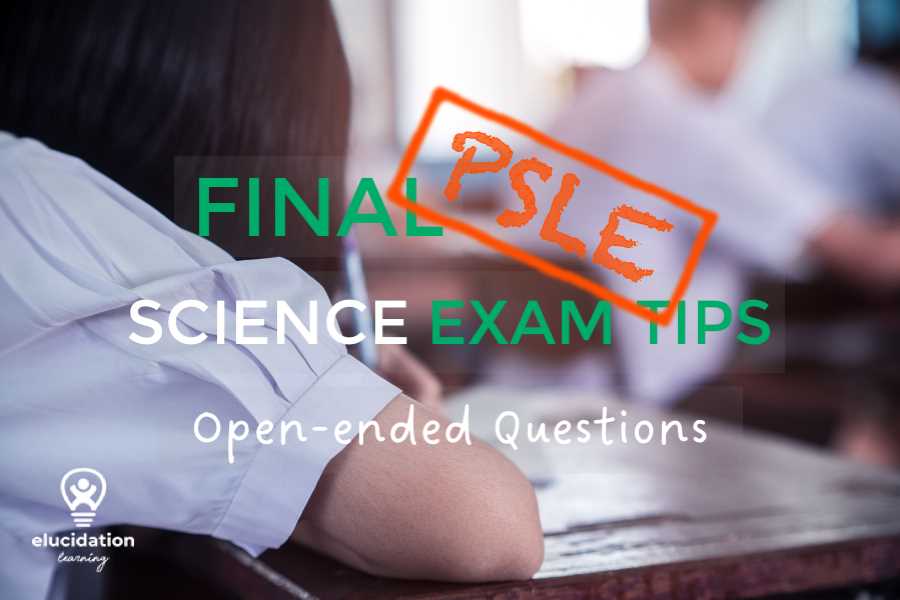
By starting with what you already know, you reduce the feeling of being overwhelmed. When you’ve completed the easier tasks, you’ll feel more prepared and have more time to think through the difficult ones. This strategy keeps you focused and organized, helping you approach the more complicated parts with clarity and confidence.
Organize Your Thoughts Clearly
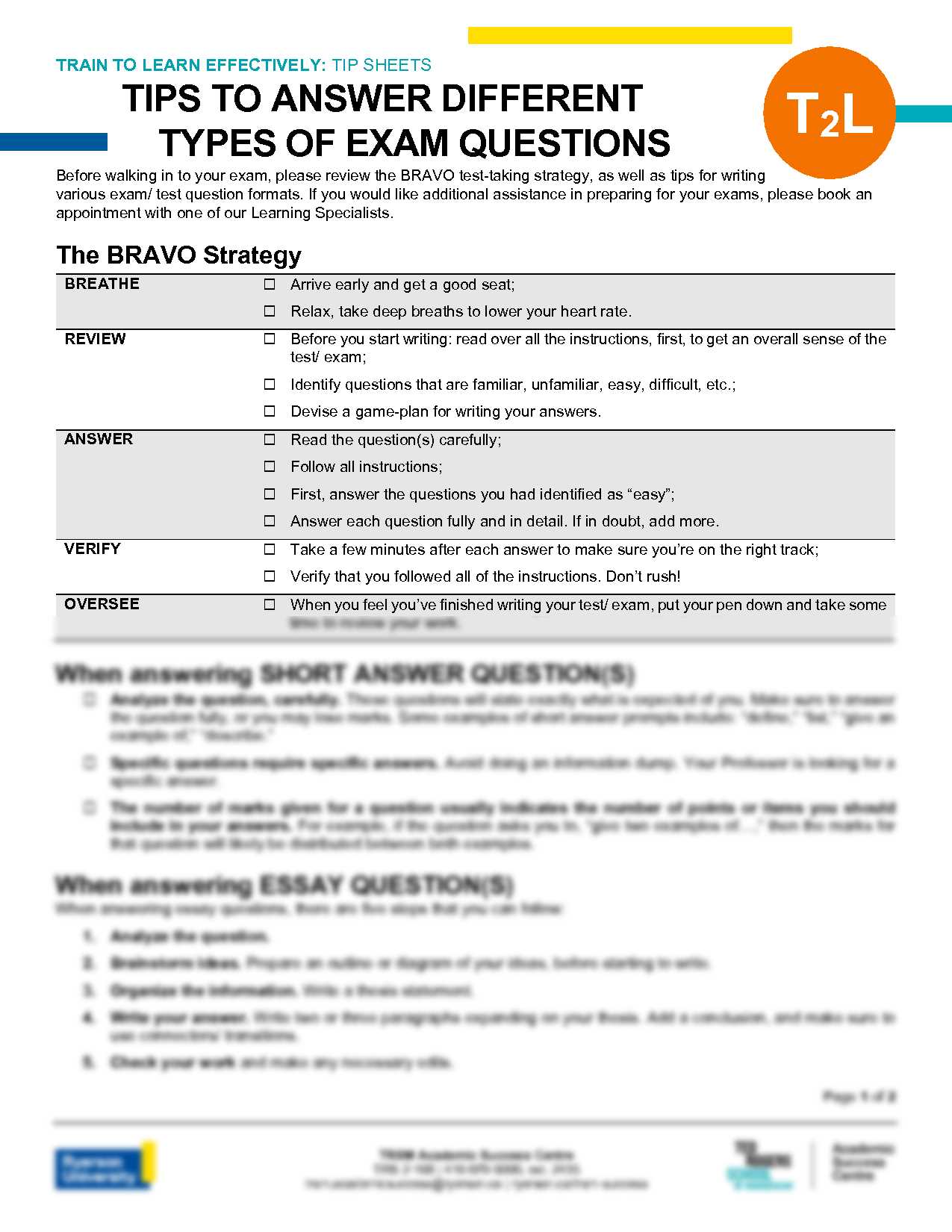
Clarity in presenting your ideas is essential when faced with any assessment. A well-structured response not only helps the reader follow your logic but also ensures that you address all aspects of the task effectively. Before you begin writing, take a moment to outline your key points and think about how to arrange them in a logical order. This will help you communicate your ideas more coherently and make the process smoother and quicker.
Start by identifying the main ideas you need to convey, then group related concepts together. This simple organization technique will allow you to stay focused and make your response more understandable. Avoid long, disjointed sentences and instead aim for concise statements that directly support your argument or explanation.
Being able to clearly organize your thoughts during the assessment can make a significant difference in your performance. By presenting your answers in a clear and structured manner, you ensure that every key point is communicated effectively, which can ultimately lead to better results.
Use Bullet Points for Clarity
When you need to present multiple ideas or steps, bullet points can significantly enhance the readability of your response. By breaking information into clear, digestible pieces, you allow the reader to easily follow your reasoning and find key points without effort. This method is especially useful for tasks that require listing facts, steps, or examples, ensuring that you stay focused and organized.
Highlight Key Information
Bullet points are an excellent tool for emphasizing important details. Instead of writing long paragraphs, use short phrases or sentences to convey each point. This makes your answer more direct and easier to follow, which can be particularly helpful when you have limited time or need to be concise.
- Use bullet points to list major ideas
- Keep each point brief and to the point
- Ensure that each bullet contributes to answering the task
Maintain Logical Flow
When using bullet points, it’s essential to arrange them in a logical order. Whether you’re presenting steps in a process or ranking ideas by importance, a well-structured list helps maintain clarity. Start with the most critical points, and avoid overloading the list with unnecessary details.
- Order points by significance or sequence
- Avoid including irrelevant or redundant information
- Check that the points flow logically from one to the next
Stay Calm and Focused
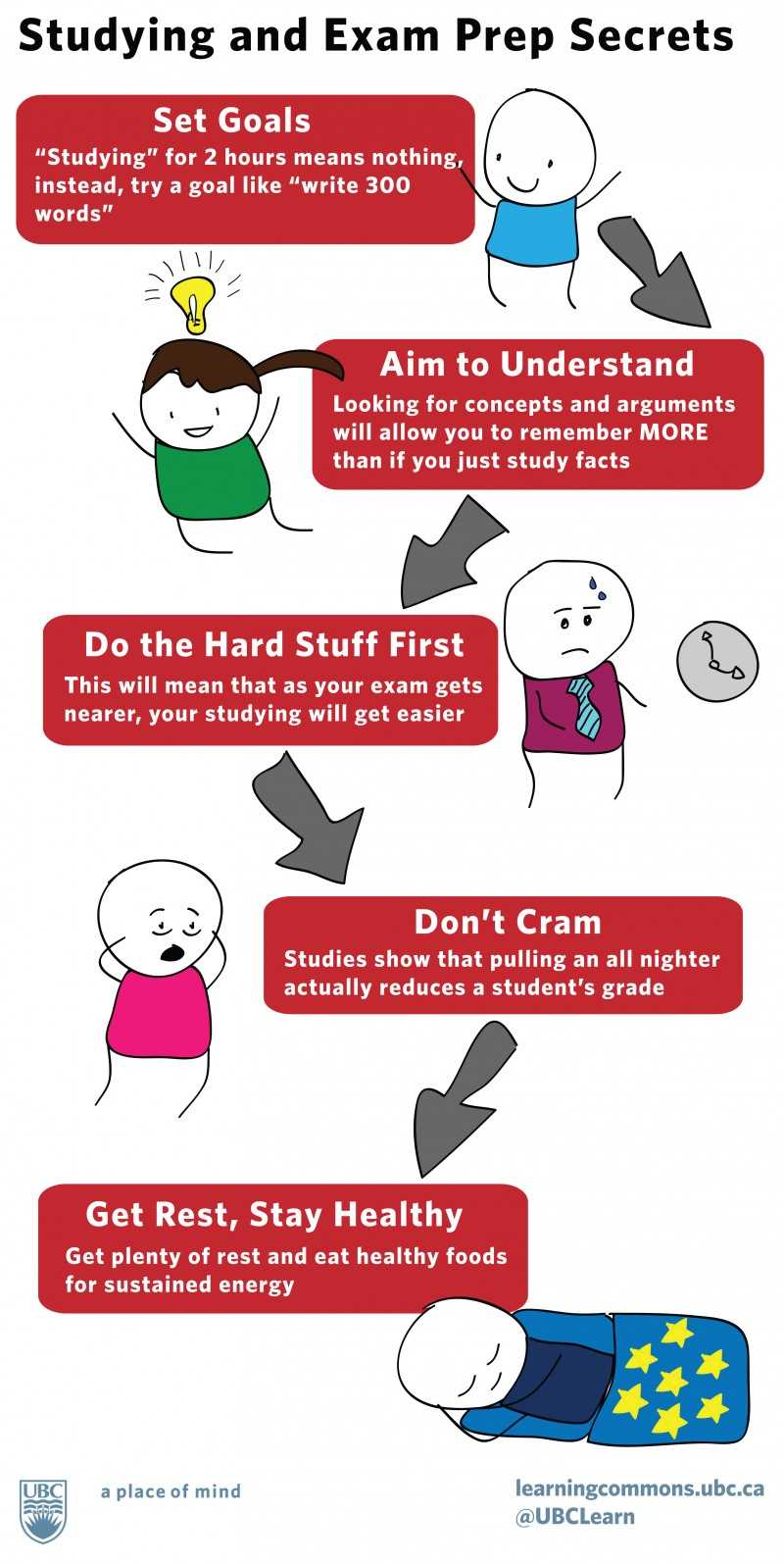
Maintaining a calm and focused mindset is essential when tackling any assessment. Stress and anxiety can cloud your thinking and reduce your ability to perform at your best. By staying composed, you allow yourself the clarity and concentration needed to navigate through each task efficiently. Take a deep breath, stay present in the moment, and focus on the task at hand.
Manage Stress Effectively
Recognize the signs of stress early, and take proactive steps to manage it. Simple techniques such as deep breathing, stretching, or briefly closing your eyes can help lower tension and bring your focus back. A calm mind performs better, so don’t let anxiety take over.
Break the Task Into Smaller Steps
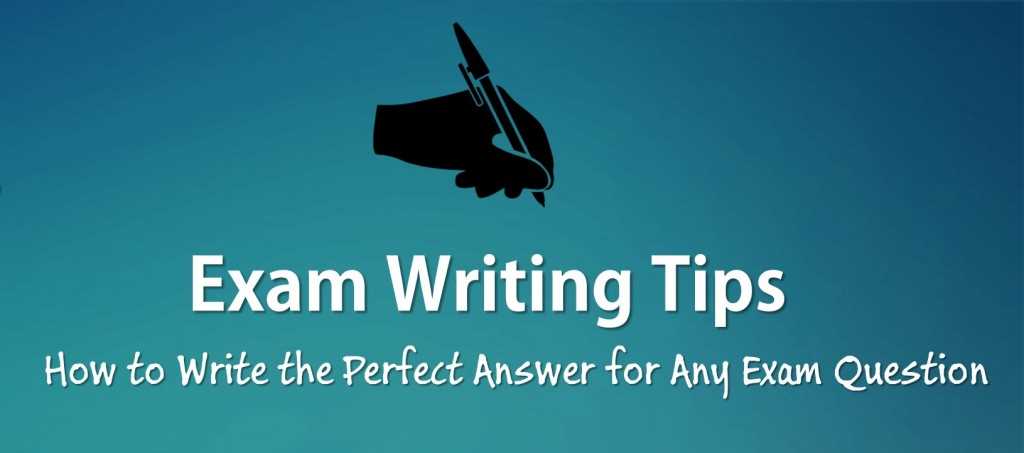
Rather than feeling overwhelmed by the entire assessment, break it down into manageable segments. Approach each part with a clear intention and focus on completing one step at a time. This reduces the feeling of being swamped and keeps your mind centered on the next logical action.
Write Concise and Relevant Answers

When responding to a task, it’s essential to be both direct and focused. A concise answer gets straight to the point without unnecessary elaboration, ensuring that all relevant information is included without straying off-topic. By prioritizing clarity and relevance, you can effectively communicate your understanding without overwhelming the reader with excessive details.
Avoid Unnecessary Details
While it’s important to explain your thoughts, avoid adding irrelevant information that doesn’t contribute to the main point. This not only saves time but also ensures that the response remains clear and impactful. Stick to the key facts and avoid tangents that can distract from your primary argument or explanation.
Stay On Topic
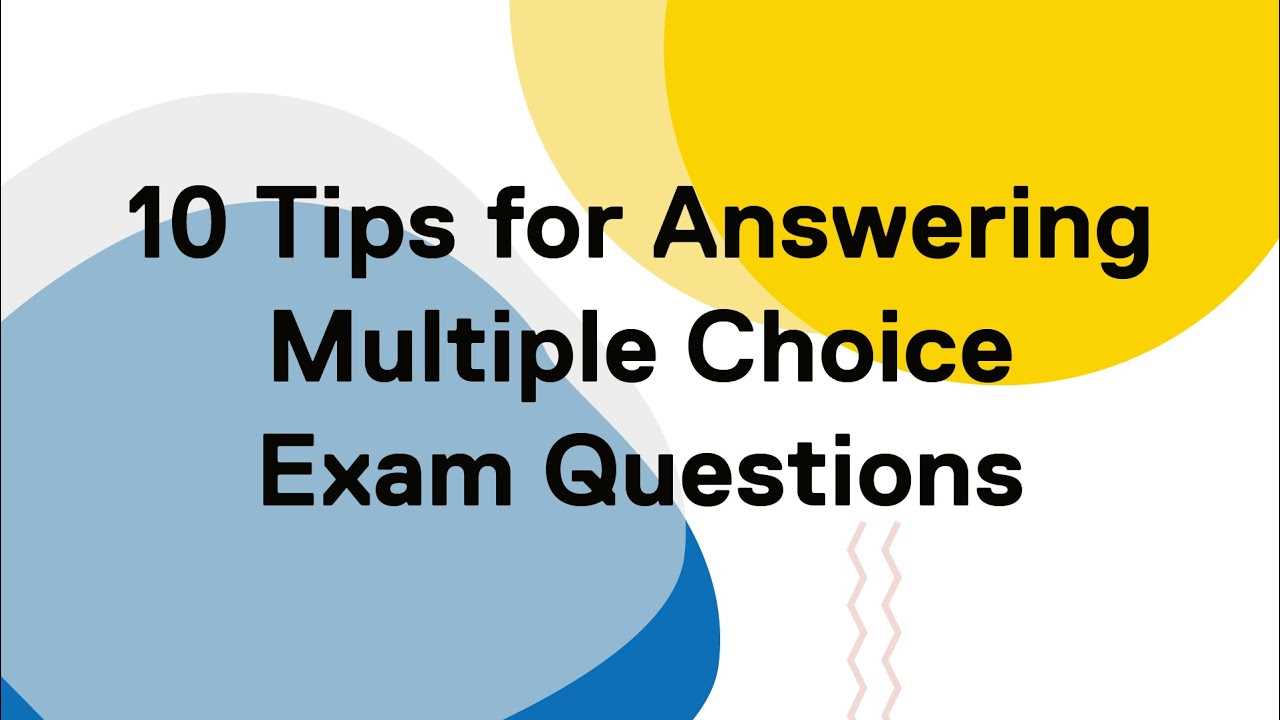
Each part of the task should be addressed directly and thoroughly, but without veering off into unrelated ideas. Keep your response focused on answering what’s being asked and avoid including background information or additional context unless it’s explicitly required.
| Effective Answer | Ineffective Answer |
|---|---|
| Clearly addresses the task with specific details | Includes irrelevant background or extra information |
| Stays focused on the question | Diverts attention to unrelated ideas |
| Uses simple, direct language | Uses complex or excessive language |
Highlight Key Points in Your Response
Emphasizing important ideas in your response helps guide the reader’s attention to the most critical aspects of your answer. Whether through formatting or clear expression, drawing attention to the key elements ensures that your message is not overlooked. By highlighting these points, you can strengthen your argument and make it easier for the evaluator to understand your reasoning.
Use Clear Markers for Key Ideas
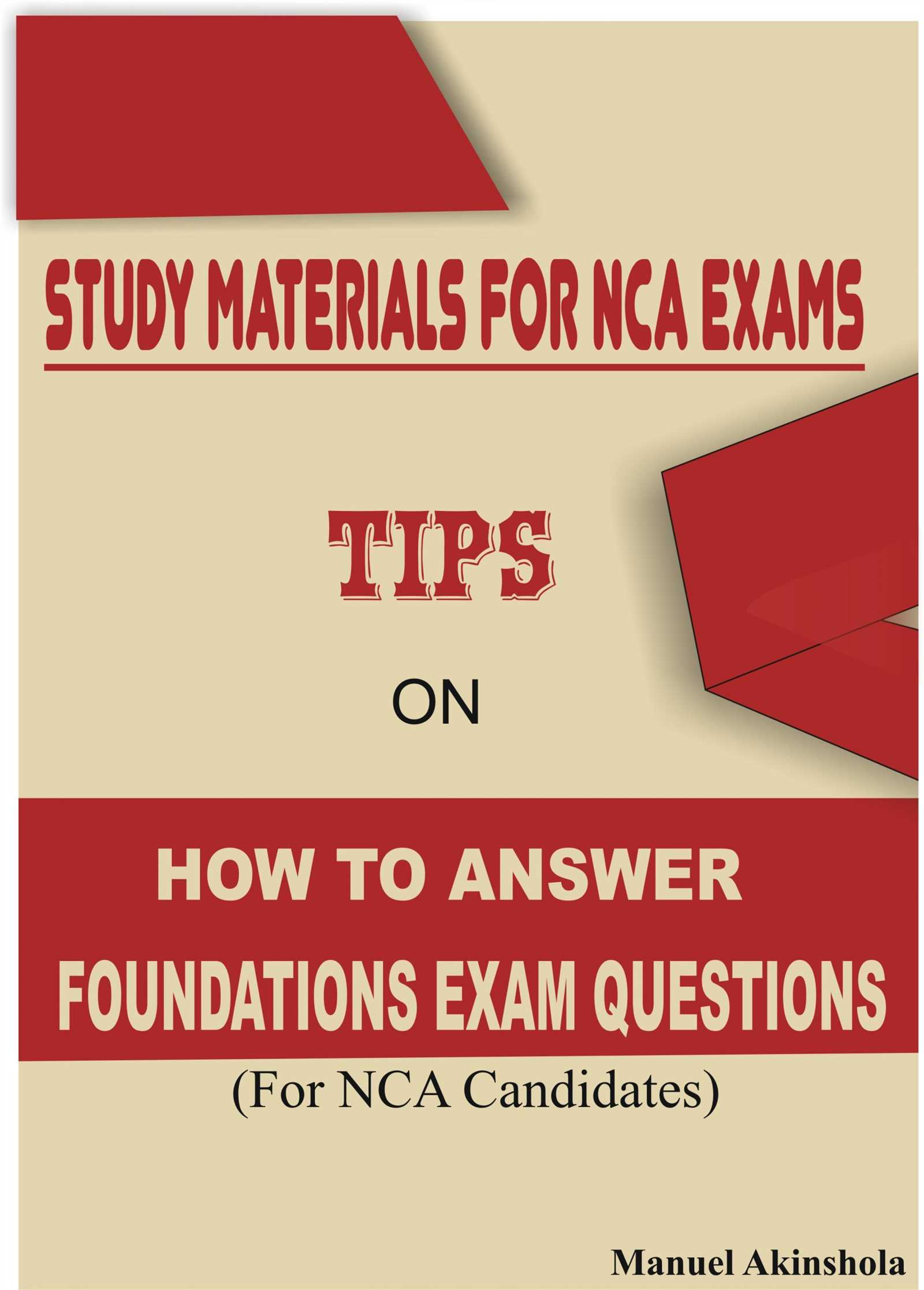
To ensure the most crucial parts of your response stand out, consider using formatting techniques like bullet points, bold text, or underlining. These markers draw attention to the most relevant information, making it easy for the reader to identify your main arguments or conclusions at a glance.
- Bullet points to list essential points clearly
- Bold text to emphasize critical terms or concepts
- Underlining to highlight key phrases
Be Direct and Specific
Avoid vague or overly general statements. When you highlight your main points, ensure that they are specific and directly relevant to the task at hand. Being clear and direct prevents any misunderstanding and reinforces the significance of your answer.
- Focus on the most important details
- Ensure your highlighted points align with the task requirements
- Avoid adding unnecessary information that distracts from key points
Don’t Leave Any Questions Blank
Leaving a section incomplete can cost you valuable marks, even if you’re uncertain about the answer. It’s always better to attempt an answer, even if it’s not fully developed, than to leave it blank. A well-thought-out guess can often earn partial credit, while an unanswered question offers no opportunity for evaluation.
If you come across a challenging task, take a moment to gather your thoughts. You can always jot down key points, even if you’re unsure of the complete answer. Doing so shows that you are actively engaging with the material and may earn you partial marks for demonstrating some knowledge.
Moreover, if time is running short, focus on writing down the key concepts you remember. Even brief, relevant information can help demonstrate your understanding and increase your chances of scoring higher.
Review Your Answer for Mistakes
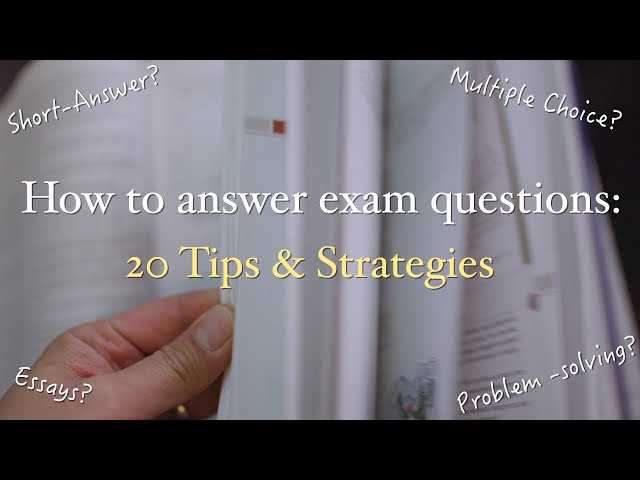
After completing a response, it’s essential to take a few moments to review it for any errors. This final check helps ensure that your ideas are clearly communicated and free of avoidable mistakes. A careful review can catch issues with grammar, spelling, or even content that might have been overlooked during the initial writing process.
During the review, focus on verifying the accuracy of the information you’ve provided. Look for any inconsistencies or misinterpretations that could weaken your argument. A quick read-through can also help you identify areas where you might need to clarify or expand on your points to make your answer stronger.
Additionally, this is the ideal time to check the format and structure of your response. Ensuring that your ideas are organized logically will improve readability and increase the chances of your answer being fully understood and graded positively.
Use Examples to Strengthen Your Answer
Incorporating relevant examples into your response is an effective way to demonstrate your understanding and support your points. Concrete examples help clarify abstract concepts and make your explanation more persuasive. When you provide real-world applications or specific instances, you add weight to your argument, making it more compelling and easier to follow.
Choose Relevant and Clear Examples
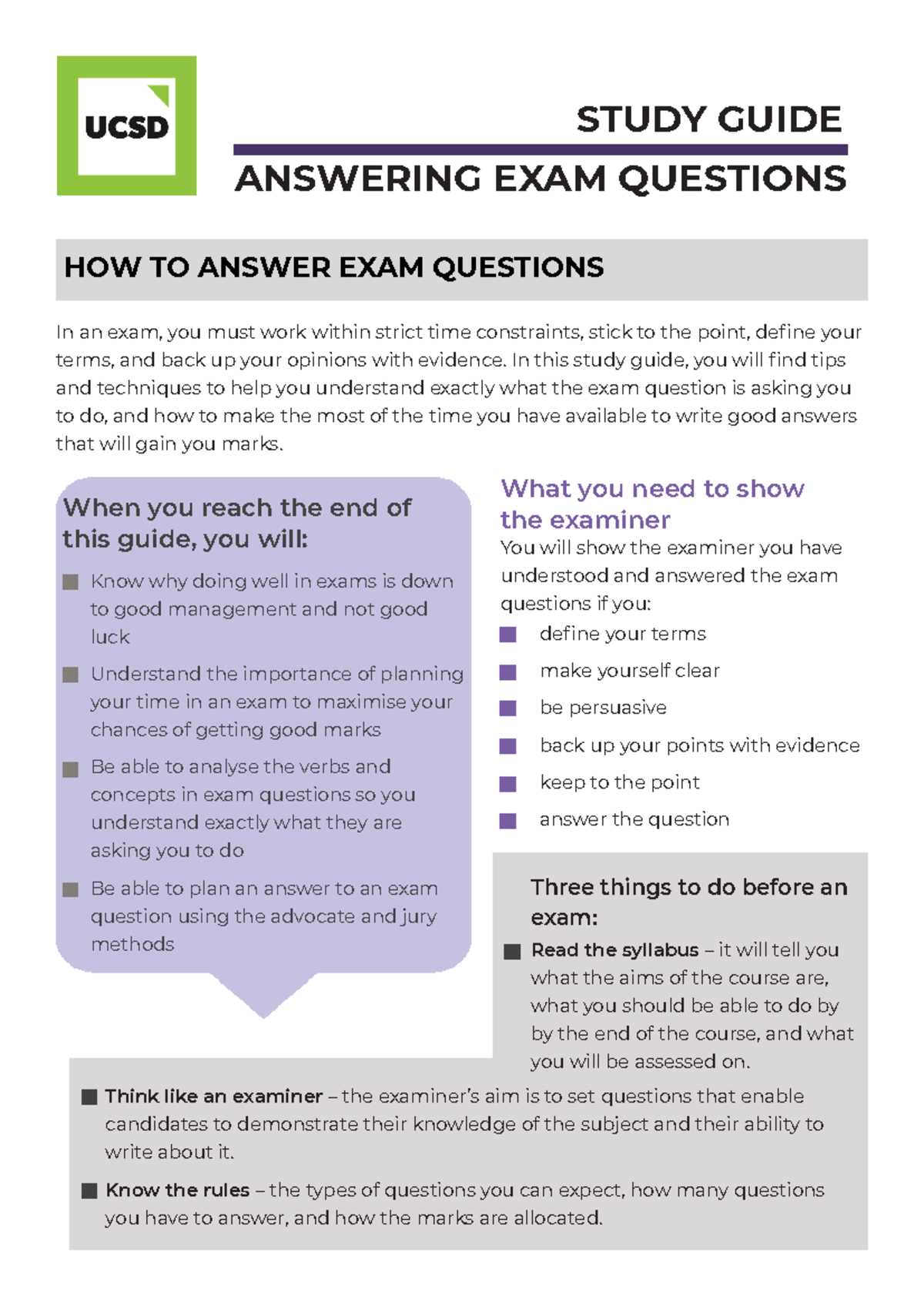
When selecting examples, ensure that they are directly related to the task and enhance your argument. Irrelevant or overly complicated examples may confuse the reader or detract from the main message. Keep your examples simple yet clear, ensuring they directly illustrate the point you’re making.
Use Examples for Clarity and Impact

Examples also help to make your explanation more tangible. Whether it’s a personal experience, a case study, or a historical reference, real-world examples can bring your answer to life, making abstract ideas easier to grasp and more memorable.
| Effective Example | Ineffective Example |
|---|---|
| Relates directly to the key concept | Too broad or unrelated to the point |
| Simple and easy to understand | Complicated and unclear |
| Clarifies and strengthens the argument | Confuses or distracts from the point |
Avoid Overthinking Your Responses
When faced with a task, it’s easy to get caught up in trying to find the perfect answer. However, overanalyzing can lead to confusion and wasted time. Often, the simplest response that directly addresses the question is the most effective. Trust in your initial understanding and avoid second-guessing yourself unnecessarily.
Focus on What You Know
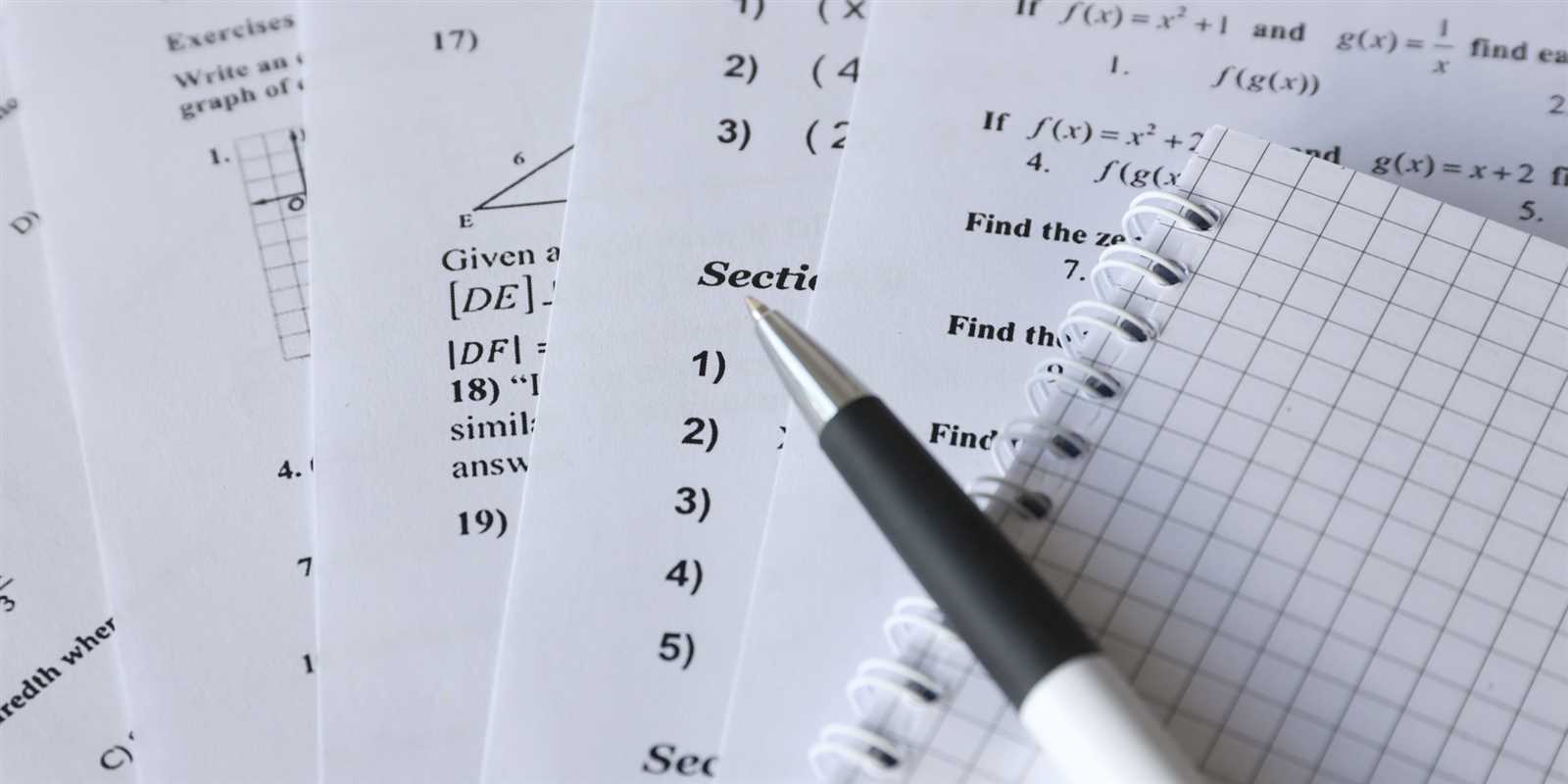
Rather than becoming fixated on the details you might not be sure about, concentrate on the information you’re confident in. Address the task clearly and concisely, using your knowledge to form a straightforward answer. Overthinking can introduce unnecessary complexity and may divert you from the main point.
Keep Your Responses Simple
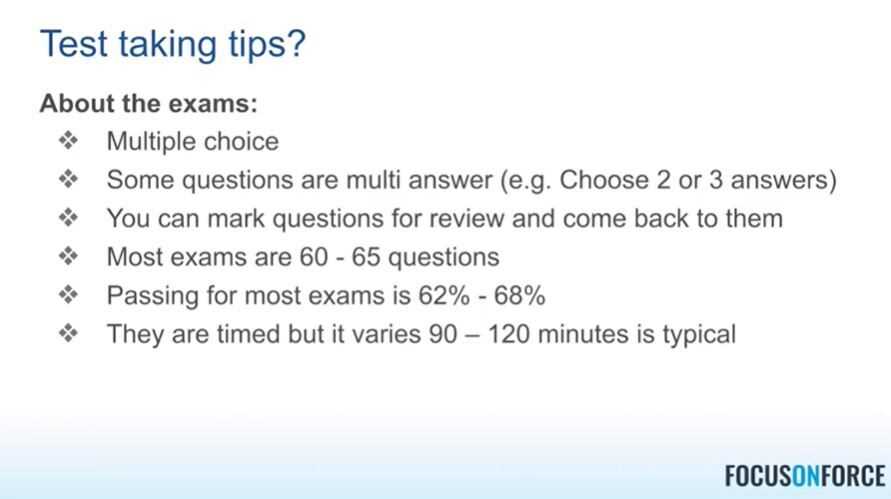
- Avoid adding excessive detail unless it’s relevant to the question.
- Stick to the main ideas without getting lost in unnecessary elaborations.
- Take a step back and re-evaluate your answer if you feel you’re overcomplicating things.
By keeping your responses simple and focused, you’ll not only save time but also ensure clarity and precision in your writing.
Practice Previous Exam Papers
One of the most effective ways to prepare for any assessment is by working through past assessments. This not only familiarizes you with the format but also helps identify common themes and question types. By practicing these tasks, you can improve your time management, develop confidence, and refine your ability to respond accurately and efficiently.
Going over previous papers allows you to understand the expectations of the task, identify patterns in the types of questions asked, and gain insight into how best to structure your answers. This preparation also aids in pinpointing areas where you may need to brush up on your knowledge or understanding.
Additionally, simulating the real-time conditions of the task will help you build stamina and reduce stress when faced with a similar situation. The more familiar you are with the process, the more natural and comfortable your responses will be.
Stay Positive and Confident
Maintaining a positive mindset can have a significant impact on your performance. A confident approach not only helps reduce anxiety but also allows you to focus better on the task at hand. Believing in your ability to handle challenges and respond effectively will enable you to tackle even the most difficult parts of the assessment with a clear and calm mind.
Negative thoughts or self-doubt can disrupt your focus and hinder your ability to think clearly. Instead, remind yourself of your preparation and strengths. A positive attitude will help you stay on track and move through each task with greater ease and efficiency.
Confidence also plays a role in how you structure your responses. When you trust in your knowledge and skills, your answers will be more concise and coherent. Even if you encounter difficult tasks, a confident approach allows you to work through them with determination.
Keep Track of Time During the Test
Time management is a crucial skill during any assessment. Keeping track of the available time ensures that you can allocate sufficient attention to each task without rushing or leaving anything incomplete. By dividing your time effectively, you can approach each section with a clear mind, knowing that you have enough time to thoroughly address every part of the assignment.
One effective strategy is to quickly glance at the clock or use a timer to set checkpoints throughout the test. For example, you can plan to spend a certain amount of time on each section and then check your progress halfway through. This will allow you to adjust your pace if needed and ensure you don’t spend too long on one part while neglecting others.
Use Time Wisely
Start by estimating how long you think each section will take. Break down complex tasks into smaller chunks and allocate time accordingly. For example, if there are multiple parts to a single task, you can set a specific time limit for each part, ensuring that you stay focused and move efficiently through the entire test.
Avoid Rushing at the End
It can be tempting to speed through the last few minutes, but this can lead to careless mistakes or incomplete answers. Instead, aim to keep a steady pace throughout the assessment, leaving the last few minutes for a final review. This gives you the opportunity to correct any errors and refine your responses.
Prepare for Exam Day Mentally
Preparation isn’t only about reviewing content; it’s also about getting your mind in the right place. The mental approach you take leading up to the test can significantly impact your performance. Developing a calm, focused mindset helps reduce anxiety and allows you to approach each task with clarity and confidence.
Start by visualizing your success. Picture yourself tackling each section with ease and finishing the assessment with a sense of accomplishment. This mental rehearsal can help you build confidence and calm any pre-test nerves. Additionally, practicing relaxation techniques, such as deep breathing or mindfulness, can help you stay centered and focused when the pressure builds.
Focus on Positive Thinking
Negative thoughts can often become a barrier to success. Instead of dwelling on what you might not know or fear of failure, remind yourself of your strengths. Trust that the preparation you’ve done will guide you through the test, and maintain a mindset focused on overcoming challenges.
Rest and Recharge
Your mental clarity is also dependent on physical well-being. Ensure you get adequate rest the night before. A well-rested mind is sharper and more focused, making it easier to recall information and think critically. Additionally, maintain a balanced diet and stay hydrated, as these factors also play a crucial role in your ability to concentrate and perform well.